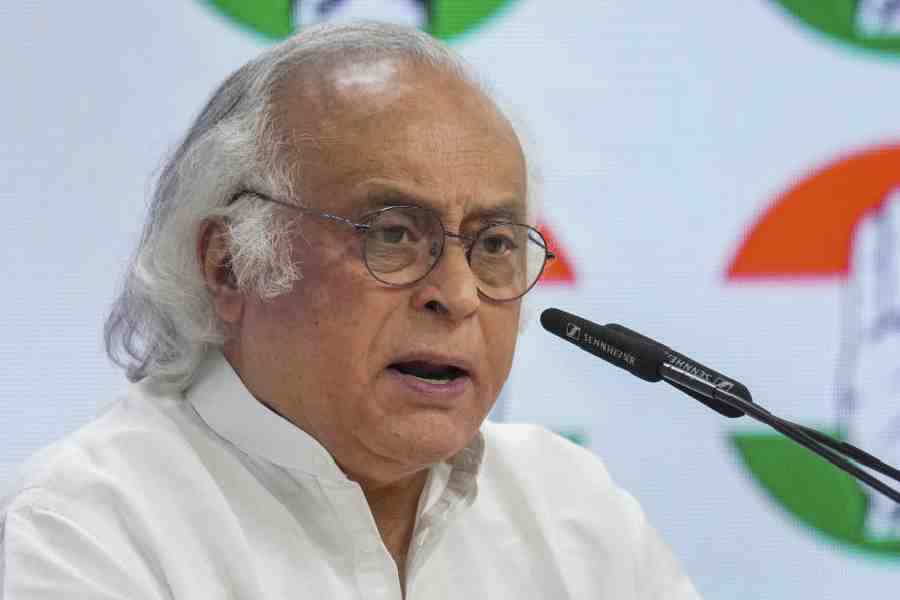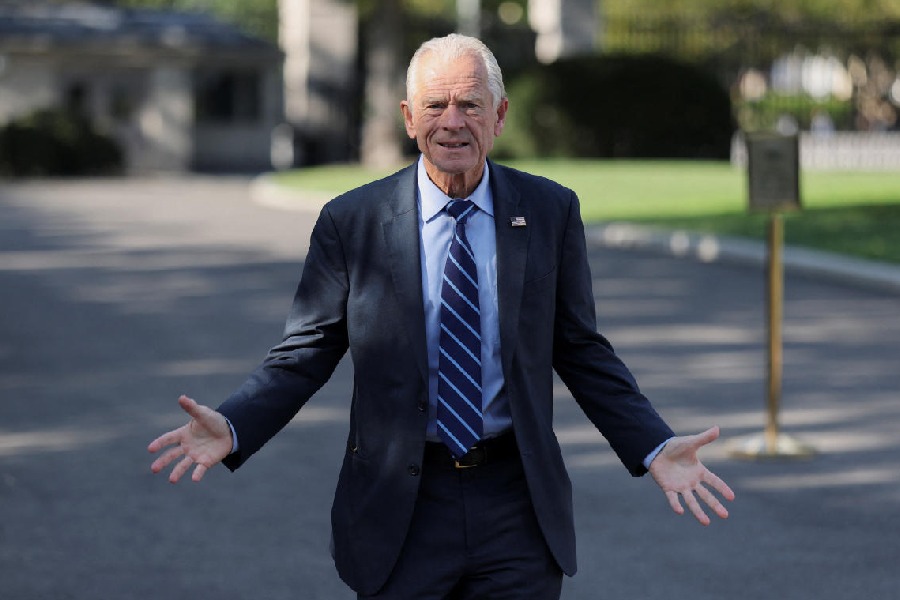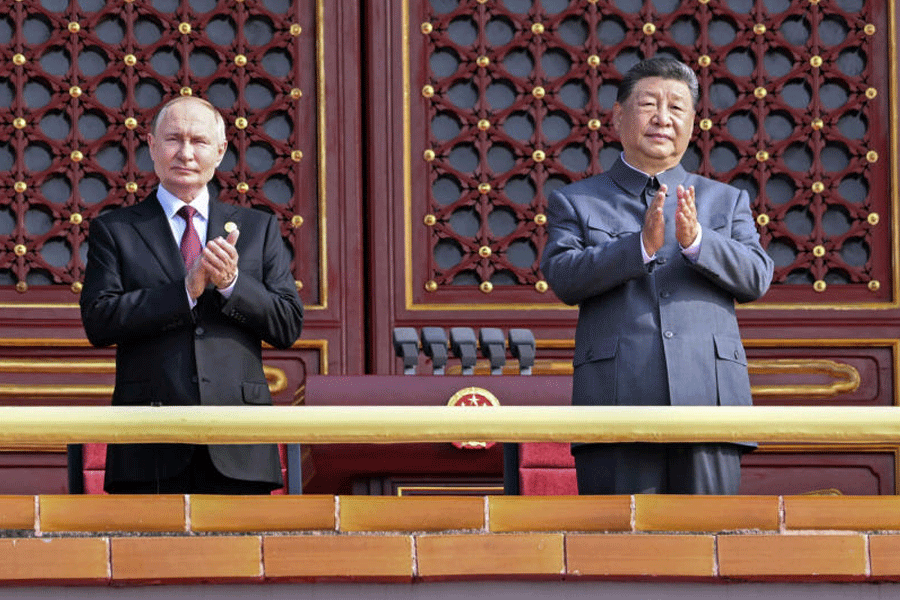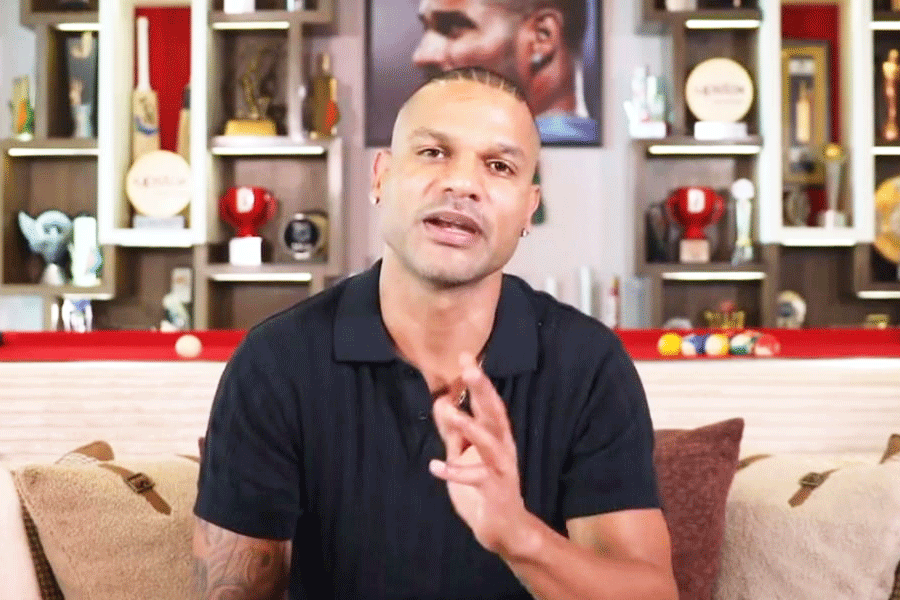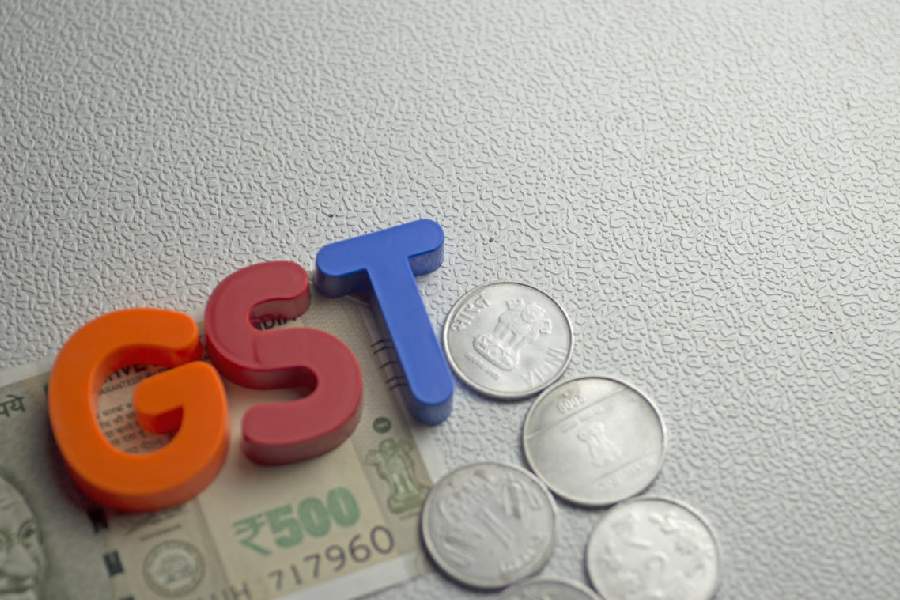 |
 |
 |
 |
| (From top) James Otis breaks down as he hugs a friend outside Antiquorum before the auction; Gandhi’s plate and bowl, and slippers; the Mahatma’s watch; and Mallya’s representative Tony Bedi after the auction in New York. (AFP and Jay Mandal/On Assignment) |
March 6: A booze baron’s big bucks have “saved” the memorabilia of the Father of the Nation, a teetotaller who stood against drinking all his life.
Culture minister Ambika Soni betrayed no sense of irony as she preened with delight after the Centre was able to “procure” the Mahatma’s belongings from a New York auction last night through liquor baron Vijay Mallya.
Mallya, known as the “King of Good Times”, forked out $1.8m (Rs 9.3 crore) to buy the five items that reflected Gandhi’s frugal way of living: his round-rimmed spectacles, leather sandals, pocket watch and the brass bowl and plate from which he is believed to have eaten his last meal.
The price might have been less but for another patriotic desi — Calcutta boy and former Test spinner Dilip Doshi — who bid till $1.7m, unaware he was competing with a fellow Indian with similar intentions.
Doshi’s representative Arlan Ettinger said his client was interested in donating the items to the Indian government. Both Doshi and Mallya, owner of IPL team Bangalore Royal Challengers, have a link with cricket, a game about which Gandhi was ambivalent.
Eminent Gandhians had yesterday criticised the government’s “silly” pursuit of the “material” memorabilia, saying it should instead focus on preserving and propagating the Mahatma’s ideals.
Today S.N. Subba Rao, a member of the Gandhi Smriti Samiti, expressed a forlorn hope over the phone from Bikaner: “I hope something better will happen. I hope he (Mallya) reduces his interest in the liquor business and helps India become liquor-free.”
Mallya’s move came as a surprise: the bidding was done by his representative Tony Bedi, and it was not till the auction was over that the tycoon’s name was mentioned.
Mallya was “bidding for the country”, Bedi said. “He’s bringing the heritage of the items back to India.”
As soon as the auctioneer announced “sold”, the crowd of Indian Americans present burst into applause and congratulated each other.
For hours, Indian American leaders had been huddled at the Indian consulate with top Indian diplomats. Sant Singh Chatwal, a leading hotelier and community leader, said the meeting decided Mallya would bid for the items.
Chatwal said he had been in touch with Mallya throughout. During the auction, Chatwal and Bedi sat side by side.
Mallya, however, later told a TV channel: “Maybe the government had a plan but I was not aware of it.”
Whether there was a plan or not, nobody had reckoned for the UK-based Doshi, who works for a company that distributes Montblanc pens and other luxury items.
As soon as Lot No. 364 came up for sale shortly after 3pm, a hush settled across the room and a slide show of Gandhi was displayed, with a recording of piano music. Bids were taken in person, over the phone, online and in writing.
While the reserve price was $20,000-30,000 and bidding increments were originally set to $10,000, within seconds the price, fuelled by Internet and phone offers, escalated to $200,000 and then started jumping by $50,000 and $100,000. Within two minutes, the bidding hit $1 million.
The contest then became a bidding war between Bedi and Ettinger. This is the second time Doshi has lost out to a man named Bedi in a national cause — having been kept out of the Indian side by Bishan Singh Bedi — but he may not mind it this time.
The Mahatma’s great-grandson Tushar Gandhi, 49, said he had asked Doshi, a friend, to try and get the items back. “But when we realised there might be an Indian bidding against him, he stopped his bid at 1.7 million.”
Of Mallya, he said: “He will give them to the government to display in a museum.”
Tushar Gandhi had been one of the leaders of the opposition to the auction in India, though some have blamed members of Gandhi’s family for selling the items in the first place.
Minister Soni, in a self-congratulatory mood, said the Centre was able to procure the items “through the services of Vijay Mallya, who was in touch with us, and whose representative was in touch with our mission in the US”.
The Centre, however, had almost shot itself in the foot by getting an injunction from Delhi High Court against the auction. When the US justice department, to which Delhi had forwarded the ruling, let the auction go ahead, the Centre could not bid for fear of contempt of court.
The justice department, however, told auctioneers Antiquorum that the items must not be handed over to the buyer until it had taken a decision on the Indian request. The items will be with the auctioneer for two weeks.
Just before the auction, the items’ US owner, James Otis, who has alleged receiving threats, tried to stop the sale through his lawyer Ravi Batra. But Antiquorum did not agree, citing possible lawsuits by the registered bidders and asked Batra to leave.
Otis had earlier offered to donate the items to India if Delhi agreed to sharply increase spending on the poor or create an international travelling exhibition on Gandhi —terms that India rejected.
Gandhi had given his silver 1910 Zenith pocket watch to Abha Gandhi, his grandniece and assistant of six years, in whose arms he died. He used to keep the timepiece, given to him by Indira Gandhi, pinned to his loincloth so he could maintain his scrupulous punctuality.
Abha also owned the simple brass bowl and plate, which she left to her daughter Gita Mehta.
Gandhi gave his glasses and their leather case to an army colonel, who had asked him for inspiration. Gandhi told him they were the “eyes” that had given him the vision to free India.
The leather sandals were given to a British officer in Aden in 1931 in return for the officer taking his photographs.
One potential bidder was Himadri Roy, 72, who had flown in from Montreal.
Roy said he had met Gandhi when he was 10 years old. When he placed a garland around the great man’s head, Gandhi had taken it off and placed it on him. Roy said he still had those flowers.
Roy, an engineer who has profited from real estate investments, said: “I just want to bid and take our stuff back.”
He grew teary as he looked at the Gandhi items on display. “Now I have some money. I want to hold on for a while and then maybe donate it.”


